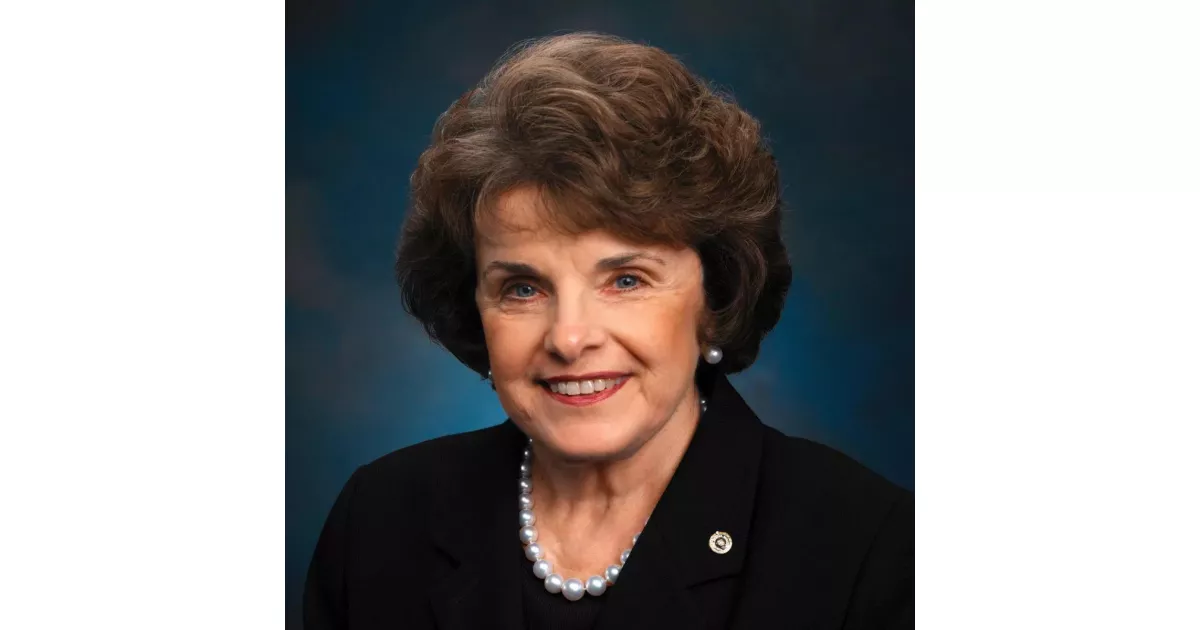Discover the defining moments in the early life of Dianne Feinstein. From birth to education, explore key events.
Dianne Feinstein was a prominent American politician who served as a U.S. Senator for California from 1992 until her death in 2023. A member of the Democratic Party, she was a trailblazer for women in politics, known for her moderate stance and focus on gun control, national security, and environmental protection. Prior to her Senate career, she served as the Mayor of San Francisco from 1978 to 1988, navigating the city through challenging times. Her long career in public service left a lasting impact on California and the nation.
June 22, 1933: Dianne Feinstein Born
On June 22, 1933, Dianne Emiel Feinstein (née Goldman) was born. She would later become a U.S. Senator from California and Mayor of San Francisco.
1951: Graduated High School
In 1951, Dianne Feinstein graduated from Convent of the Sacred Heart High School.
1955: Fellow at Coro Foundation
From 1955, Dianne Feinstein was a fellow at the Coro Foundation in San Francisco.
1955: Graduated from Stanford University
In 1955, Dianne Feinstein graduated from Stanford University with a Bachelor of Arts in history.
1956: End of fellowship at Coro Foundation
In 1956, Dianne Feinstein was no longer fellow at the Coro Foundation in San Francisco.
1956: Marriage to Jack Berman
In 1956, Feinstein married Jack Berman, who was then working in the San Francisco District Attorney's Office.
1957: Birth of daughter Katherine Feinstein Mariano
In 1957, Feinstein's daughter, Katherine Feinstein Mariano, was born.
1960: Appointed to California Women's Parole Board
In 1960, Governor Pat Brown appointed Dianne Feinstein to the California Women's Parole Board.
1962: Marriage to Bertram Feinstein
In 1962, Feinstein married her second husband, neurosurgeon Bertram Feinstein, shortly after beginning her career in politics.
1966: End of term on California Women's Parole Board
In 1966, Dianne Feinstein's term on the California Women's Parole Board ended.
1969: Elected to San Francisco Board of Supervisors
In 1969, Dianne Feinstein was elected to the San Francisco Board of Supervisors.
1970: First Female President of the Board of Supervisors
In 1970, Dianne Feinstein became the first female president of the San Francisco Board of Supervisors.
1970: Appointed President of the San Francisco Board of Supervisors
In 1970, Dianne Feinstein was appointed as the first female president of the San Francisco Board of Supervisors.
1971: Unsuccessful Mayoral Run
In 1971, Dianne Feinstein unsuccessfully ran for mayor of San Francisco against Mayor Joseph Alioto.
1971: End of term as president of San Francisco Board of Supervisors
In 1971, Dianne Feinstein's term as first female president of the San Francisco Board of Supervisors ended.
1974: Term as president of San Francisco Board of Supervisors
In 1974, Dianne Feinstein served another term as president of the San Francisco Board of Supervisors.
1975: Lost Runoff Slot in Mayoral Race
In 1975, Dianne Feinstein lost the contest for a runoff slot in the mayoral race to Supervisor John Barbagelata.
1975: End of term as president of San Francisco Board of Supervisors
In 1975, Dianne Feinstein's term as president of the San Francisco Board of Supervisors ended.
1976: Targeted by NWLF
In 1976, Dianne Feinstein was targeted by the New World Liberation Front, including a bomb placed at her home.
June 4, 1977: Honorary Degree from Golden Gate University
On June 4, 1977, Dianne Feinstein was awarded the honorary degree of Doctor of Laws from Golden Gate University in San Francisco.
November 27, 1978: Became Acting Mayor of San Francisco
On November 27, 1978, Dianne Feinstein became acting mayor of San Francisco after the assassinations of Mayor George Moscone and Supervisor Harvey Milk.
December 4, 1978: Inaugurated as Mayor of San Francisco
On December 4, 1978, Dianne Feinstein was inaugurated as San Francisco's first female mayor.
December 1978: End of term as president of San Francisco Board of Supervisors
In December 1978, Dianne Feinstein's term as president of the San Francisco Board of Supervisors ended.
1978: Succeeded Moscone as Mayor of San Francisco
In 1978, Dianne Feinstein became the Mayor of San Francisco after the assassination of Mayor George Moscone.
1978: Death of Bertram Feinstein
In 1978, Feinstein's second husband, Bertram Feinstein, died of colon cancer.
1979: Cable Car System Shutdown
In 1979, Dianne Feinstein faced the challenge of the San Francisco cable car system being shut down for emergency repairs.
1980: Marriage to Richard C. Blum
In 1980, Feinstein married investment banker Richard C. Blum.
1980: Supported Carter-Mondale Ticket
In the 1980 presidential election, Dianne Feinstein strongly supported the Carter-Mondale ticket.
1982: Proposed Handgun Ban and Faced Recall Attempt
In 1982, Dianne Feinstein proposed banning handguns in San Francisco, leading to a recall attempt which she survived.
1982: Vetoed Domestic Partner Benefits Legislation
In 1982, Dianne Feinstein, as mayor, angered the gay community by vetoing legislation that would have extended city-employee benefits to domestic partners.
1982: Cable Car System Closed for Rebuilding
In 1982, the San Francisco cable car system closed for rebuilding under Dianne Feinstein's leadership as mayor.
1983: Faced recall attempt
In 1983, Dianne Feinstein faced a recall attempt.
1984: Oversaw the 1984 Democratic National Convention
In 1984, Dianne Feinstein, as mayor, oversaw the 1984 Democratic National Convention in San Francisco.
1984: Cable Car System Reopened
In 1984, The San Francisco cable car system rebuilding was completed in time for the Democratic National Convention during Dianne Feinstein's tenure as mayor.
1984: Considered as Mondale's Running Mate
In 1984, there was speculation that Mondale might pick Dianne Feinstein as his running mate, but he chose Geraldine Ferraro instead.
1985: Revealed Sensitive Details about Richard Ramirez Case
In 1985, Dianne Feinstein revealed sensitive details about the hunt for serial killer Richard Ramirez, jeopardizing the investigation.
1987: Named Nation's "Most Effective Mayor"
In 1987, City & State magazine named Dianne Feinstein the nation's "Most Effective Mayor".
January 8, 1988: Finished Second Term as Mayor
On January 8, 1988, Dianne Feinstein finished her second term as mayor of San Francisco.
1988: Member of the Trilateral Commission
In 1988, Dianne Feinstein was a member of the Trilateral Commission.
1990: Unsuccessful Gubernatorial Bid
In 1990, Dianne Feinstein made an unsuccessful bid for governor of California, losing to Pete Wilson.
1990: Support for Capital Punishment
In 1990, when Feinstein first ran for statewide office, she supported capital punishment.
1991: Wilson Resigned from Senate
In 1991, Wilson resigned from the Senate to take office as governor of California.
November 3, 1992: Elected to the Senate
On November 3, 1992, Dianne Feinstein was first elected to the Senate.
November 1992: Elected to the U.S. Senate
In November 1992, Dianne Feinstein was elected to the U.S. Senate in a special election, becoming California's first female U.S. Senator.
November 1992: Sworn in as Senator
In November 1992, Dianne Feinstein was sworn in as a senator, becoming California's senior senator and the first female Jewish U.S. senator.
1992: Ran for U.S. Senate
In 1992, Dianne Feinstein ran for U.S. Senate in a special election to complete Wilson's term.
1992: Fined for Campaign Finance Violations
In 1992, Dianne Feinstein was fined $190,000 for failure to properly report campaign contributions and expenditures in her 1990 campaign.
January 1993: Boxer took office
In January 1993, Boxer took office.
January 1993: Became Senior Senator
In January 1993, Dianne Feinstein became California's senior senator after Alan Cranston's retirement.
1994: Re-elected to Senate
In 1994, Dianne Feinstein was re-elected to the Senate.
2000: Re-elected to Senate
In 2000, Dianne Feinstein was re-elected to the Senate.
2002: Death of Jack Berman
In 2002, Feinstein's first husband Jack Berman, died.
2003: Vote Against Partial-Birth Abortion Ban Act
In 2003, Feinstein voted against the Partial-Birth Abortion Ban Act, a proposal to ban intact dilation and extraction.
2003: Ranked Fifth-Wealthiest Senator
In 2003, Feinstein was ranked the fifth-wealthiest senator, with an estimated net worth of $26 million.
2004: Called for Death Penalty in Espinoza Case
In 2004, Feinstein called for the death penalty in the case of San Francisco police officer Isaac Espinoza.
2005: Net Worth Increase
By 2005, Feinstein's net worth increased to between $43 and $99 million.
2006: Re-elected to Senate
In 2006, Dianne Feinstein was re-elected to the Senate.
2007: Chaired Senate Rules Committee
In 2007, Dianne Feinstein chaired the Senate Rules Committee (2007-2009).
2012: Re-elected to Senate
In 2012, Dianne Feinstein was re-elected to the Senate.
2012: Received Record Votes in Senate Election
In the 2012 election, Dianne Feinstein received 7.86 million votes, which was, until 2024, the most popular votes received by any U.S. Senate candidate in history.
2012: Katherine Feinstein Mariano ends term as judge
Through 2012, Katherine Feinstein Mariano ended her 12 years as presiding judge of the San Francisco Superior Court.
2013: Liberal Lioness
In 2013, The New York Times called Feinstein a "liberal lioness," highlighting her advocacy for gun control, abortion access, environmental protection, and a strong national defense.
2015: End of term as chair of the Select Committee on Intelligence
In 2015, Dianne Feinstein's term as chair of the Select Committee on Intelligence ended.
January 2017: Pacemaker Insertion
In January 2017, Feinstein had an artificial cardiac pacemaker inserted at George Washington University Hospital.
October 2017: Declared Intention to Run for Reelection
In October 2017, Dianne Feinstein declared her intention to run for reelection in 2018.
2017: Became Top Democrat on Senate Judiciary Committee
In 2017, Dianne Feinstein became the top Democrat on the Senate Judiciary Committee, the first woman to hold that position.
2018: Opposed Capital Punishment
By 2018, Feinstein opposed capital punishment, marking a change from her earlier stance.
2018: Death of John McCain
Feinstein's death marked the first time a sitting senator had died since John McCain died in 2018 of brain cancer.
2018: Re-elected to Senate
In 2018, Dianne Feinstein was re-elected to the Senate.
2018: Centrism Emphasis
In 2018, the Los Angeles Times reported that Feinstein emphasized centrism when first running for statewide office in the 1990s, and later shifted leftward as California became more Democratic.
October 2020: Cognitive Decline Reports
In October 2020, media reports indicated that Dianne Feinstein was experiencing cognitive decline and short-term memory loss.
2020: Reports of Cognitive Decline
In 2020, investigative journalist Jane Mayer reported that some colleagues and staffers had observed cognitive decline in Feinstein for several years.
2021: Criticism Over Supreme Court Nomination Hearings
In 2021, After her performance at Amy Coney Barrett's October 2020 Supreme Court nomination hearings was criticized, Feinstein did not seek to chair the Senate Judiciary Committee or serve as its ranking member.
October 22, 2022: Not interested in serving as president pro tempore
On October 22, 2022, Dianne Feinstein said that due to family matters, she was not interested in serving as president pro tempore in 2023.
2022: Death of Richard C. Blum
In 2022, Feinstein's husband, Richard C. Blum, died from cancer.
2022: Continued Reports of Cognitive Issues
In 2022, The New York Times reported that Feinstein struggled to remember her colleagues' names, meetings she had attended, and phone calls she had received, amidst continuing stories of her cognitive issues.
2022: Call for Congressional Action on Abortion Rights
In 2022, after the Supreme Court overturned Roe v. Wade, Feinstein called for congressional action to protect abortion rights and supported lifting the Senate filibuster to pass such legislation with a simple majority.
March 2023: Diagnosis of Shingles and Hospitalization
In March 2023, Feinstein was diagnosed with shingles and hospitalized, subsequently suffering complications including encephalitis and Ramsay Hunt syndrome.
May 10, 2023: Returned to the Senate
On May 10, 2023, Dianne Feinstein returned to the Senate amid continuing concern about her capacity to serve.
May 2023: Return to the Senate
In early May 2023, Feinstein returned to the Senate floor after a 10-week absence, using a wheelchair and appearing frail. Her remark about having "been here" raised questions about her memory.
July 17, 2023: Ceded Power of Attorney to Daughter
On July 17, 2023, Feinstein ceded power of attorney to her daughter, Katherine.
August 2023: Hospitalized After Fall
In August 2023, Feinstein was hospitalized after a minor fall at her home in San Francisco, but was subsequently cleared to return home.
2023: Not interested in serving as president pro tempore
In 2023, Dianne Feinstein said that she was not interested in serving as president pro tempore.
2023: Hospitalization and Calls for Resignation
In early 2023, Dianne Feinstein's hospitalization for shingles stalled Biden administration nominees, leading to calls for her resignation, which she resisted.
Mentioned in this timeline
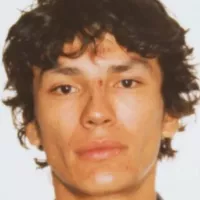
Richard Ramirez known as the Night Stalker was an American...

Bernie Sanders is a prominent American politician currently serving as...

Barack Obama the th U S President - was the...

Hillary Diane Rodham Clinton is a prominent American politician lawyer...
Facebook is a social media and networking service created in...
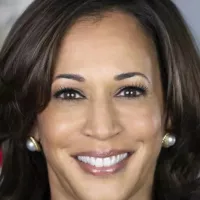
Kamala Harris is an American politician and attorney She served...
Trending
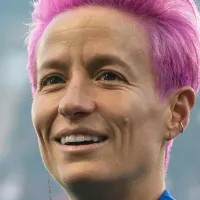
3 minutes ago Rapinoe Reacts to Trump Invite Criticism Amidst Hockey Team's Political Debate.

4 minutes ago Townsend vs. Masarova: WTA Austin Quarterfinal Prediction and Masarova's Quarterfinal Entry

1 hour ago Cole Anthony's Status: Coach Ott Addresses Absence; Buyout Rumors Emerge

1 hour ago Cavan Sullivan, 16, Makes History Scoring Twice in Champions Cup Rout!
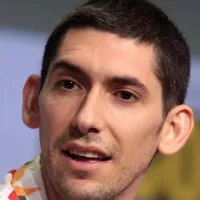
2 hours ago Max Landis Returns to Hollywood with G.I. Joe Movie at Paramount

2 hours ago Usyk vs. Verhoeven: WBC Title Fight at the Pyramids of Giza
Popular

Jesse Jackson is an American civil rights activist politician and...

Susan Rice is an American diplomat and public official prominent...

XXXTentacion born Jahseh Dwayne Ricardo Onfroy was a controversial yet...

Michael Joseph Jackson the King of Pop was a highly...

Barack Obama the th U S President - was the...

Hillary Diane Rodham Clinton is a prominent American politician lawyer...
